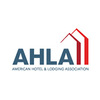AHLA workforce report: Hotels add 700 jobs in May
Hotels more than 190,000 jobs short of pre-pandemic levels amid economy-wide labor shortage

WASHINGTON – U.S. hotels added 700 jobs to their payrolls in May, according to the latest government data that shows the nationwide workforce shortage continues to make it difficult for hotels to fill open jobs.
Total hotel employment stands at about 1.92 million, according to the Bureau of Labor Statistics. That’s 191,500 fewer workers in the industry than in February 2020, just before the pandemic hit, a shortfall that reflects the scarcity of available employees since then.
Hotels are ready to grow and create more jobs, but the nationwide workforce shortage that has persisted in the post-pandemic economy is preventing that from happening. Congress and the administration can provide relief to hoteliers by taking a number of key steps to increase the pool of available workers. Those include expanding the number of H-2B visas, extending the certification period for H-2B employees, and making it easier for qualified asylum seekers to start working in the U.S. AHLA Interim President & CEO Kevin Carey
Hotel workforce overview
Hotels continue to offer increased wages, benefits, and workplace flexibility to attract and retain workers in the face of a nationwide workforce shortage:
- Since the pandemic, average hotel wages (+26.4%) have increased more than 20% faster than average wages throughout the general economy (+21.7%).
- Despite these increases, there are currently tens of thousands of open hotel jobs in the U.S., according to Indeed.
Nationwide workforce overview
- As of April, there were 8.1 million job openings in the United States and only 6.5 million unemployed people to fill those jobs, according to the Bureau of Labor Statistics.
AHLA workforce policy priorities
AHLA is calling on the Department of Homeland Security to expand the workforce by making available nearly 65,000 additional H-2B temporary nonagricultural worker visas as soon as possible, under authority Congress gave it as part of the Further Consolidated Appropriations Act.
AHLA also urges Congress to pass the following bills to help expand the workforce so hoteliers can maintain and expand their operations:
- The Closing the Workforce Gap Act of 2024 (H.R. 7574) would replace the arbitrary annual cap of 66,000 H-2B guestworker visas with a new, needs-based system for allocating visas.
- The H-2 Improvements to Relieve Employers (HIRE) Act (H.R. 4708) would expand the H-2A/H-2B labor certification period to three years and permanently authorize the waiver of in-person interviews for returning workers. The HIRE Act would make it easier for qualified workers to secure jobs in fields that are struggling to recruit and retain enough employees to meet demand. By growing the pool of seasonal workers, the bill would give seasonal small business hotels critical staffing relief and facilitate the hotel industry’s continued recovery.
- The Asylum Seeker Work Authorization Act (S.255/H.R.1325) would allow people seeking asylum at ports of entry to be eligible for work authorizations starting 30 days after they apply for asylum, provided their applications are not frivolous; they are not detained; their identities have been verified; and their names are run through the federal government’s terrorist watch lists. This change would help hotels address critical staffing needs by allowing certain asylum seekers to work as soon as 30 days after applying for asylum. Current law prevents them from legally working for at least six months, forcing them to rely on assistance from local governments and communities.
About the American Hotel & Lodging Association (AHLA)
The American Hotel & Lodging Association (AHLA) is the largest hotel association in America, representing more than 30,000 members from all segments of the industry nationwide – including iconic global brands, 80% of all franchised hotels, and the 16 largest hotel companies in the U.S. Headquartered in Washington, D.C., AHLA focuses on strategic advocacy, communications support, and workforce development programs to move the industry forward. Learn more at www.ahla.com.
